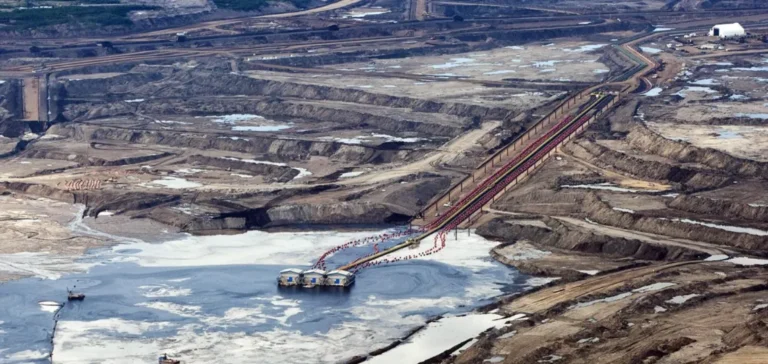Canadian oil sands production increased by 150,000 barrels per day in 2024, while absolute greenhouse gas (GHG) emissions rose by less than one million metric tonnes of carbon dioxide equivalent (MtCO2e). These results mark another year of partial decoupling between output growth and total emissions, according to an analysis published by S&P Global Commodity Insights.
The data shows a trend of slower emissions growth, supported by ongoing improvements in carbon intensity per barrel produced. In 2024, the average emissions intensity fell by 3% to 57 kilograms of carbon dioxide equivalent per barrel (kgCO2e/bbl), across all extraction methods.
Efficiency gains extend a trend that began in 2009
Since 2009, the average GHG intensity of oil sands operations has declined by 28%, or nearly 22 kgCO2e/bbl. This development is the result of continuous technological optimisation in extraction processes, enabling output growth without a proportional increase in emissions.
Between 2019 and 2024, absolute emissions rose by about 5 MtCO2e, representing an annual average of 1% (excluding 2020), compared to nearly 12 MtCO2e between 2015 and 2019, when output increased by 600,000 barrels per day. This confirms a significant slowdown in the growth rate of emissions, even as sector expansion continues.
Medium-term outlook still points upward
The 2024 emissions increase was mainly driven by higher production of mined synthetic crude oil (SCO), where emissions gains outpaced efficiency improvements within that segment. However, the analysis notes that operators are now favouring growth strategies based on operational optimisation.
S&P Global Commodity Insights expects absolute emissions to keep rising—albeit more slowly—so long as reductions in GHG intensity are modestly outpaced by output increases. A plateau, or even a moderate decline in emissions, remains possible if future production grows below current projections.
“Oil sands production growth has consistently outpaced expectations in recent years,” said Celina Hwang, Director of Crude Oil Markets at S&P Global Commodity Insights. “This ongoing trend continues to push the prospect of a peak in absolute emissions further into the future.”






















